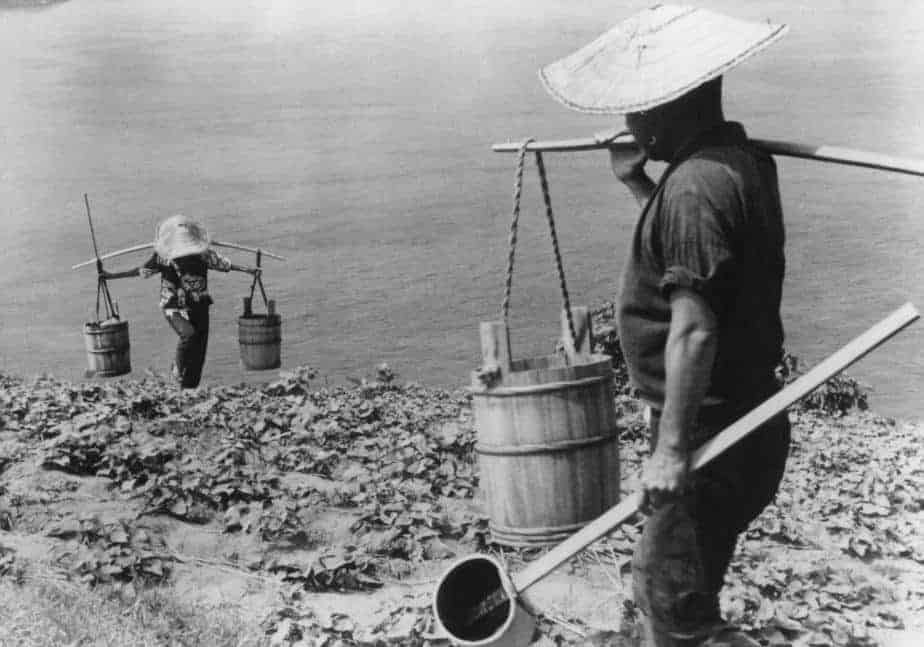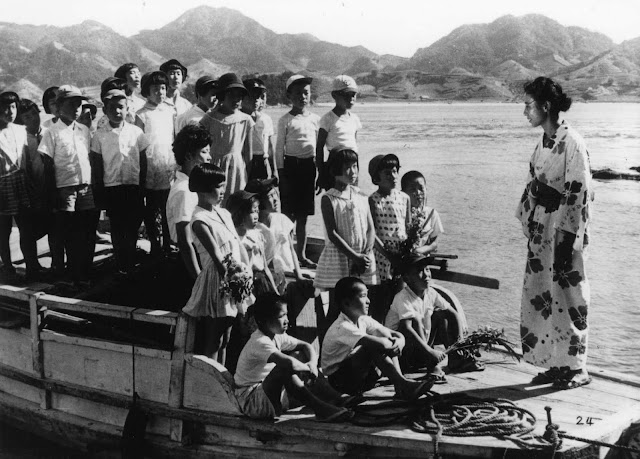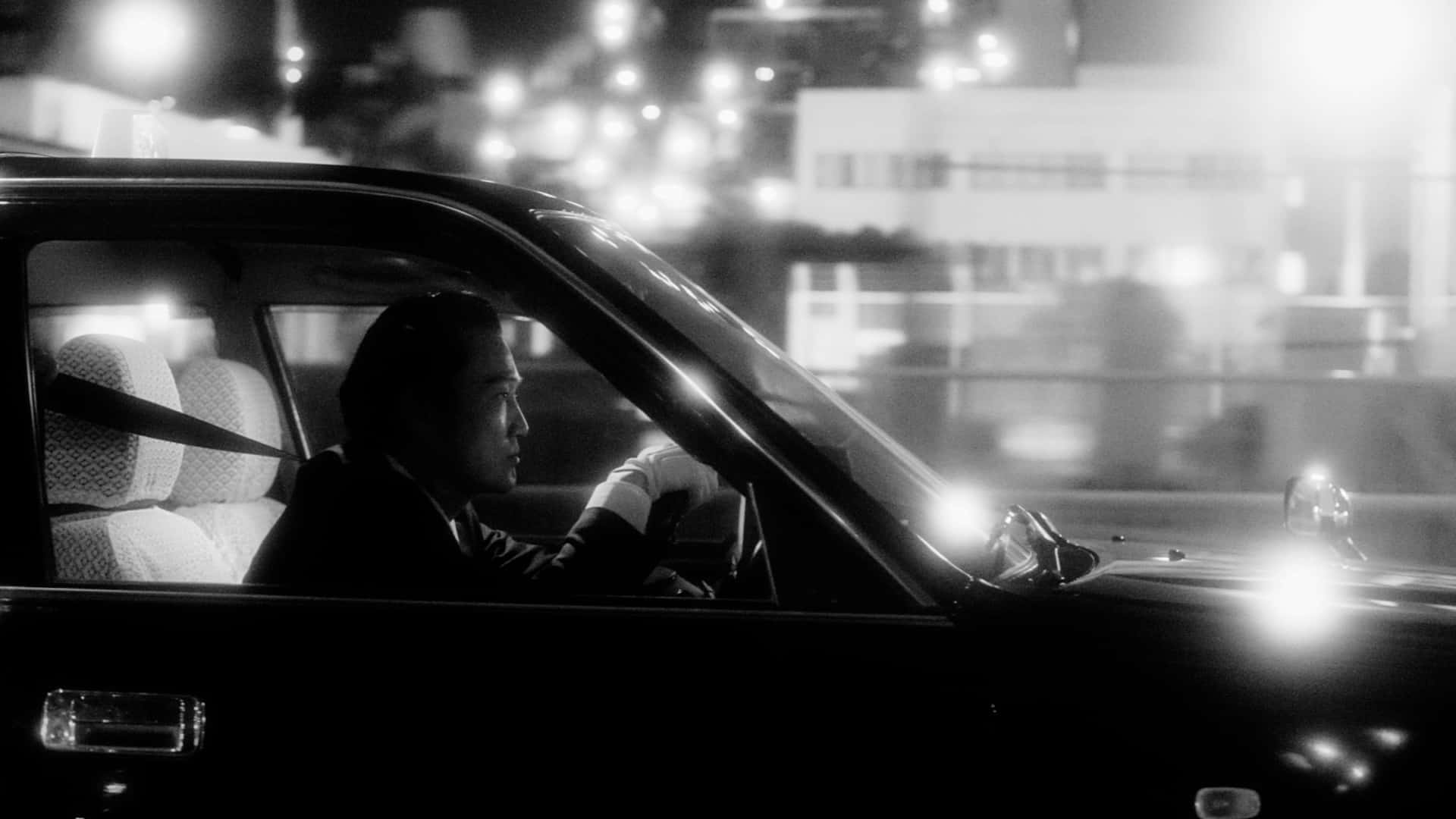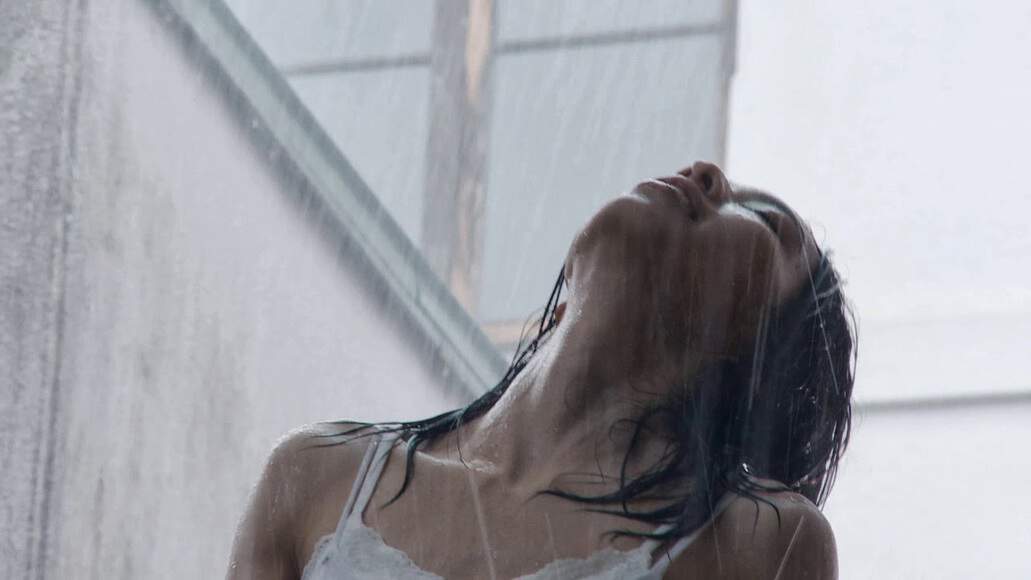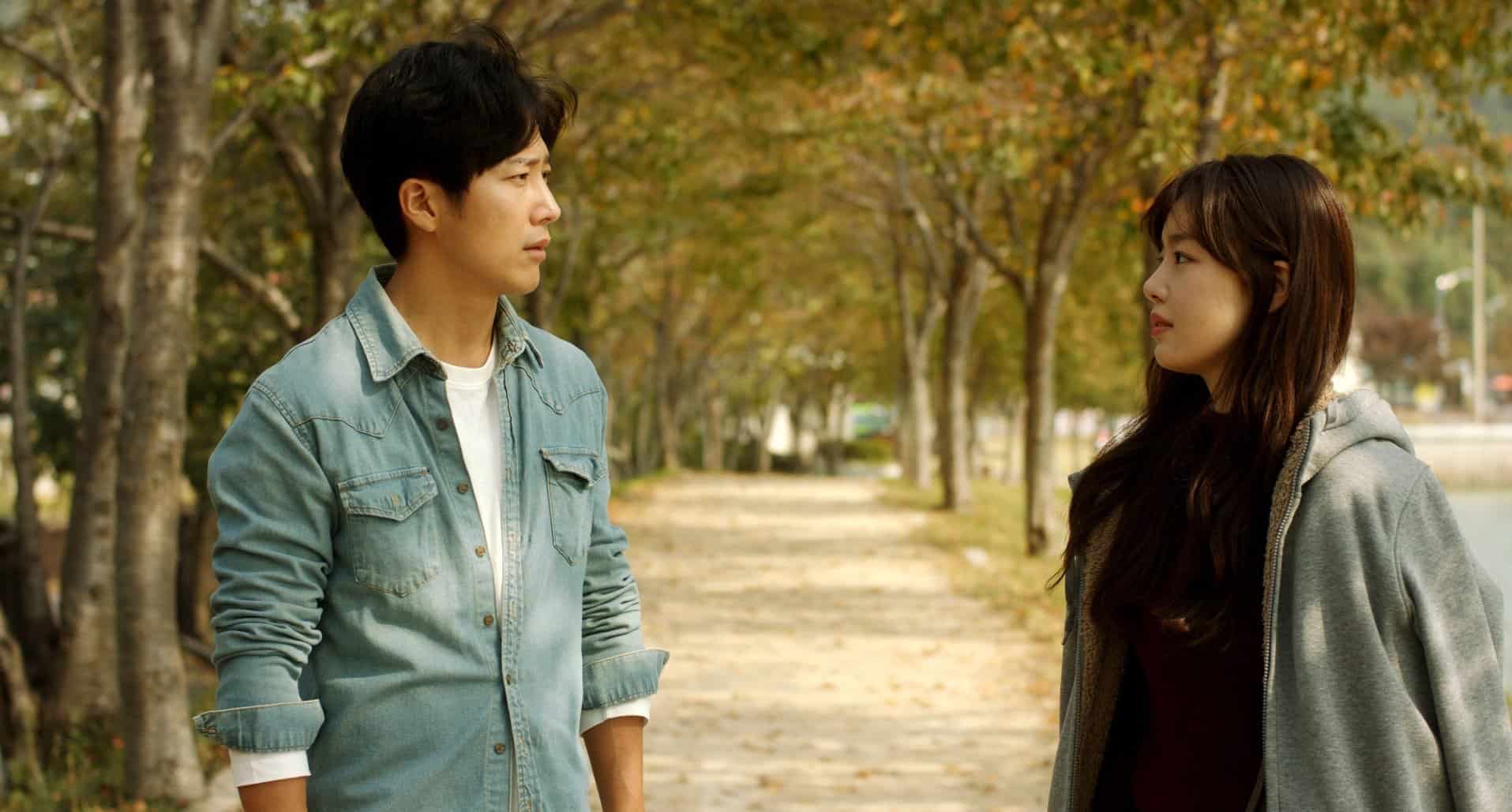Kaneto Shindo was a prolific director and screenwriter who created some of the most memorable films of the black and white era, such as “Onibaba” (1964) and “Kuroneko” (1968). In “The Naked Island” (1960) Shindo gives us a window on a small farming family living on an island, showing the harsh conditions under which they survive.
Buy This Title
The film begins with a man and woman collecting water that they transport back to the island on a small vessel. We see that they have two sons living with them. It is clear from the beginning that theirs is a difficult life. The dry earth means that they are required to continually water their crops, travelling back and forth from the island and hauling their buckets up the steep hill. The eldest son is taken by his mother to school on the mainland. While much of their time is taken up with an endless struggle against the elements, they also enjoy the pleasures of life, eating together, or bathing in a tin tub as the sun sets over the sea. We see both the joy and sorrow of their existence. When they travel to the nearby town on the mainland, we can see a contrast between the worlds of community and society there, with festivals, restaurants and televisions, and the isolated life of the family on their island.
Kaneto Shindo, who also wrote the screenplay, explores the hardships of agrarian life and the dangers of isolation. It will certainly not appeal to everyone, being somewhat unconventional. Shot in black and white, with a languid pace, and often very little apparent action, it has an almost documentary-like feel at times. However, the decision to use no dialogue allows the audience to enjoy a master class in visual storytelling. Kiyomi Kuroda's cinematography is magnificent and each shot and scene feels laden with meaning, whether it is the tiller of their small boat trailing through the water, or the couple trudging up the slope of their farm with buckets across their shoulders, or performing any number of daily tasks, you sense that with each moment they are driving home the message of how hard life is for these characters. Dialogue would only be a distraction from the beauty of the work. The film does involve a fair amount of repetition, which again may be off-putting to some viewers. We see them travel back and forth a number of times, and repeat the same tasks over again, but this all serves to illustrate the backbreaking labour and tedium that is required to stay alive in this world.
Hikaru Hayashi's score provides a great backdrop for the action. It captures a quiet happiness while maintaining a melancholic edge. The music lilts from calm and pleasant to darker shades that suggest the ever present dangers the protagonists face, namely drought and starvation.
While unconventional in its lack of dialogue or significant plot elements, “The Naked Island” is about universal themes of family, suffering, life and death. The expert cinematography and accompanying score prevent the film from becoming a test of patience. We are not told much about the characters to begin with and part of the puzzle is finding out about their lives from the small hints that we are given. The lead actors Nobuko Otowa and Taiji Tonoyama do an incredible job of portraying the hardworking couple with their strengths as well as their flaws. Otowa in particular, gives a fascinating performance of a woman who is dealing with various stresses and strains of family and farming life.
I would highly recommend the movie as a fine example of filmmaking. With a simple story and no dialogue, Shindo nevertheless manages to paint a detailed picture of family life. It abounds with perfect visual metaphors for many aspects of life and society. The island comes to represent both the family's unity and their isolation from others, while being laden down with water buckets gives us a tangible sense of the pressures they are under. The final dramatic moments of the film are particularly powerful as they seem to follow unexpectedly, but in some ways inevitably, from what has gone before. An emotional look at what life means for those who struggle to live.


